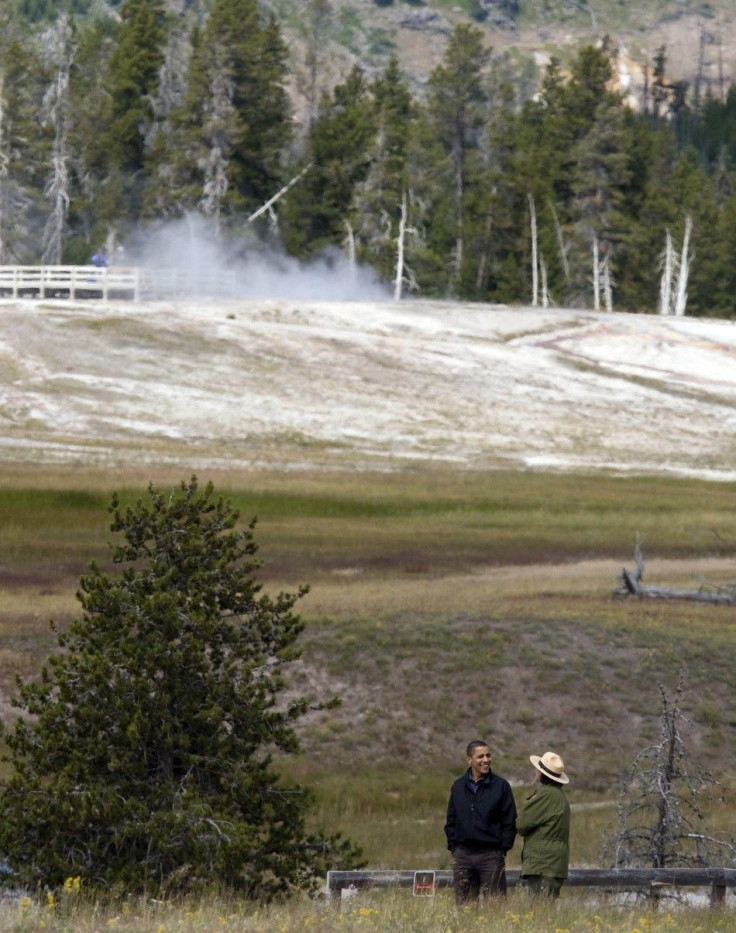Climate Change to Cause More Yellowstone Fires, Transform Park Ecosystem: Study

Large fires in Yellowstone National Park could significantly increase due to climate change, drastically altering the park people know today, a new study suggests.
The combination of the wildfires and rising temperature will fundamentally change the ecosystem at Yellowstone, but not destroy it, according to the study led by Professor Anthony Westerling of the University of California, Merced.
"Large, severe fires are normal for this ecosystem. It has burned this way about every few hundred years for thousands of years," study author and ecologist, Monica Tuner of the University of Wisconsin-Madison, said. "But if the current relationship between climate and large fires holds true, a warming climate will drive more frequent large fires in the Greater Yellowstone Ecosystem in the future."
The study claims that by 2050, wildfires will burn up 400 square miles of land per year. By 2075, it's expected to burn up 1,200 square miles per year. The entire area of Yellowstone National Park is less than 3,500 square miles.
Dense forests are expected to give way to more open woodland, grass, and shrub vegetation. Forests will become younger on average (because trees will be frequently killed by fires). Moreover, entire populations of trees are expected to disappear.
As plant life changes, many animals are expected to either migrate or die off.
The overall impact affects "the region's wildlife, hydrology, carbon storage and aesthetics," said a press release from the University of California, Merced.
"What surprised us about our results was the speed and scale of the projected changes in fire in Greater Yellowstone. We expected fire to increase with increased temperatures, but we did not expect it to increase so much or so quickly. We were also surprised by how consistent the changes were across different climate projections," Westerling said.
Researchers for the new study made their projections by studying the impact temperatures had on large wildfires in the northern Rocky Mountains from 1972 to 1999.
The study was published online in the July 25 edition of the journal "Proceedings of the National Academy of Sciences."
© Copyright IBTimes 2024. All rights reserved.





















